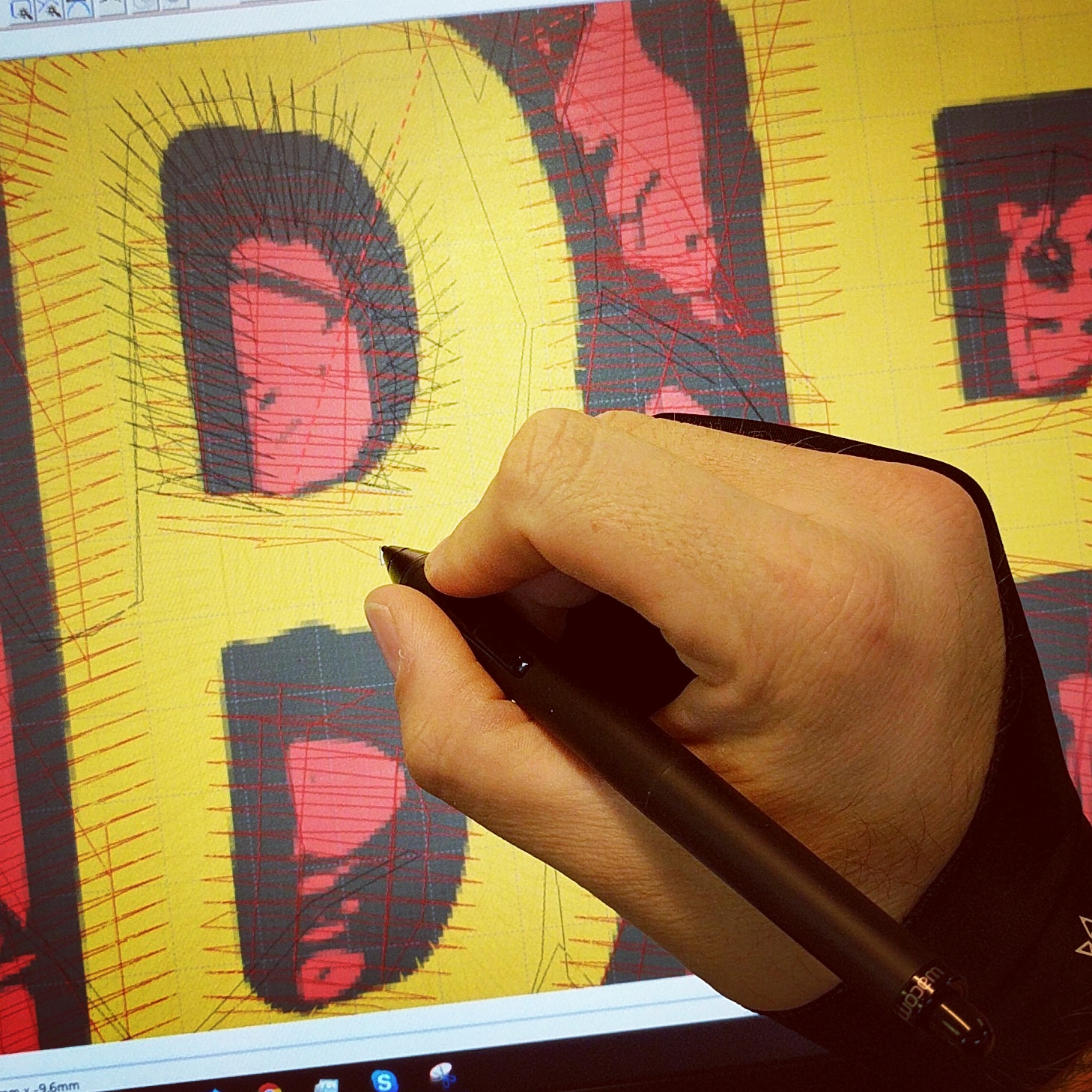Expert Digitizing for Embroidery: Fast and Reliable Service
Expert Digitizing for Embroidery: Fast and Reliable Service
Blog Article
Explore Various Types of Embroidery Digitizing Techniques
Needlework digitizing has actually evolved substantially over the years, providing a myriad of methods to bring designs to life in the digital world. The realm prolongs to extra sophisticated techniques like photorealistic needlework digitizing and the fascinating world of 3D embroidery digitizing.
Standard Hand Embroidery Digitizing
Conventional hand embroidery digitizing involves the procedure of converting detailed hand-stitched styles into digital formats for equipment embroidery. This technique needs competent artisans to thoroughly assess the handcrafted style and after that use specialized software program to recreate it in an electronic format. Each stitch, shade, and detail must be carefully converted to guarantee that the essence of the original hand embroidery is protected in the digital version.
One of the crucial challenges of traditional hand needlework digitizing is capturing the intricacies and subtleties of the handmade design. Digitizing for Embroidery. Artisans have to possess a deep understanding of different needlework techniques, such as satin stitch, chain stitch, and French knots, to accurately replicate these methods in the digital world. In addition, they need to have an eager eye for detail to ensure that the electronic layout preserves the very same level of creativity and workmanship as the initial hand-stitched item
Punching Method
To perfectly transition from typical hand embroidery digitizing to the boxing technique, craftsmens should currently focus on converting the detailed electronic designs into guidelines that needlework makers can translate. The boxing method includes using specialized software program to produce electronic documents which contain commands for the needlework equipment to comply with. This process calls for a deep understanding of not just the layout itself but also the capabilities and constraints of the embroidery device.

Auto-Digitizing Software Application Programs
Embroidery digitizing has been revolutionized by the development of auto-digitizing software application, offering artisans with sophisticated tools to convert electronic layouts into embroidery machine directions efficiently. Auto-digitizing software program programs use formulas to assess digital pictures or vector files and produce embroidery layouts instantly. These programs enable fast and exact conversion of intricate styles right into stitch patterns, conserving effort and time for embroiderers.
One of the crucial benefits of auto-digitizing software program is its easy to use user interface, making it accessible to both newbies and knowledgeable digitizers. These programs commonly consist of features such as stitch modifying tools, string color matching, and the capability to sneak peek the final stitched design. Furthermore, auto-digitizing software application can deal with complex designs with numerous shades and complex information, creating high-grade needlework documents appropriate for various clothing and fabric tasks.
While auto-digitizing software program offers convenience and effectiveness, it is crucial for customers to comprehend the restrictions More Info of automated digitizing. Fine-tuning and hand-operated adjustments might still be called for to accomplish the preferred embroidery quality, particularly when managing elaborate or unique styles. By leveraging the capabilities of auto-digitizing software together with hands-on digitizing click this strategies, craftsmens can improve their needlework digitizing process and develop sensational stitched items.
Photorealistic Embroidery Digitizing
Using advanced digital imaging methods, attaining photorealistic cause needlework digitizing has actually ended up being an in-demand ability amongst contemporary craftsmens. This method involves converting high-resolution photos right into complex stitch patterns that closely simulate the initial design, leading to needlework items that display lifelike information and deepness.
To achieve photorealistic needlework digitizing, craftsmens have to possess a keen eye for detail and a complete understanding of how various stitch types and densities can affect the final end result. By very carefully drawing up each color and shade in the image, embroiderers can develop a digital file that guides the needlework device to reproduce the nuances of the original picture accurately.
Photorealistic needlework digitizing is specifically preferred in creating customized layouts for clothing, home design, and art items where catching the significance of a photograph or artwork is crucial. This strategy permits craftsmens to transform memories, landscapes, portraits, and intricate artwork into sensational embroidered work of arts that showcase a mix of typical workmanship and cutting-edge innovation.
3D Needlework Digitizing
With the development of electronic imaging methods in achieving photorealistic lead to embroidery digitizing, the exploration of 'D Needlework Digitizing' offers a brand-new measurement to the intricacies of design duplication. 'D Needlework Digitizing' refers to the three-dimensional digitizing technique that includes deepness and structure to embroidery designs, producing a more sensible and visually appealing end product. This method uses software application that imitates company website the effect of light and darkness on the embroidery design, boosting its overall aesthetic impact.
Among the essential advantages of 'D Embroidery Digitizing' is its capacity to make designs look even more lifelike and dynamic. By adding depth to the needlework layout, the end product appears more sensible and exciting (Digitizing for Embroidery). In addition, this strategy permits for even more innovative freedom in layout execution, enabling embroiderers to try out various textures and impacts that were previously testing to attain
Verdict

Report this page